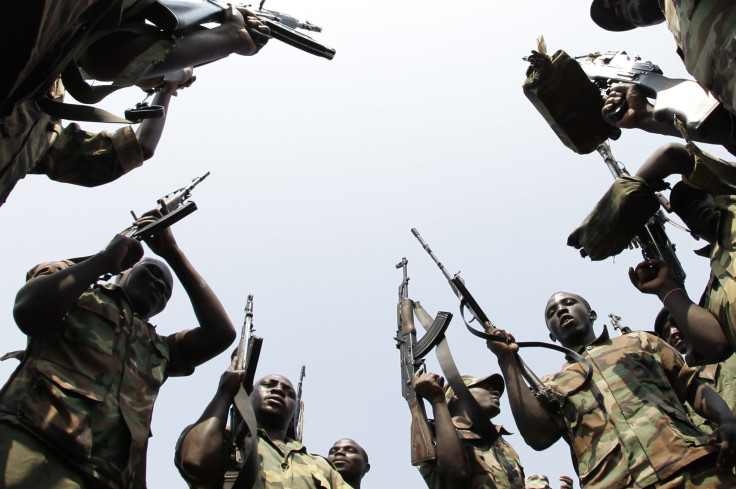Congo Rebel Group M23 Threatens To Retake Goma As UN Peacekeepers Ramp Up Patrols

Rebels in the Democratic Republic of the Congo are threatening to retake the eastern city of Goma if their demands aren't met, less than one week after the United Nations called for them to turn in their weapons or risk forceful intervention from UN peacekeeping forces.
The rebel group M23 is a reincarnation of older insurgent movements, and just one of dozens of militias in the region. It takes its name from a March 23 peace agreement that saw the rebels' absorption into the chronically weak Congolese army in 2009. The group consists mainly of Congolese nationals from the Tutsi ethnic group; it coalesced in 2012, citing complaints that the 2009 deal hadn't been upheld.
M23 made headlines in November when its fighters briefly occupied Goma, one of the major towns in North Kivu, a region rich in minerals but plagued by conflicts. Monusco, a UN peacekeeping force of 17,000, was criticized for failing to fend off the November invasion. Since then, the UN presence has been strengthened by the authorization of a 3,000-member intervention brigade employing heavy arms and operating under a more robust mandate. Most of its members come from Malawi, Tanzania and South Africa.
Rwanda and Uganda have been accused of backing M23, though both governments deny these allegations. Rwanda has an especially tense relationship with DR Congo, going back to the 1994 Rwandan genocide, which pitted militant Hutus against Tutsis and moderates.
That conflict spilled into neighboring Congo, and Rwanda accused the Congolese government of sheltering Hutu perpetrators of violence. This was one of several issues at the heart of two massive wars -- essentially pitting Uganda and Rwanda against DR Congo and its allies -- that killed at least five million people between 1996 and 2003. Even now, various roaming militias, including M23, continue to destabilize communities and commit grave human rights abuses against civilians.
M23 withdrew from Goma in late November after engaging in talks with the Congolese government. But the rebels didn't go far, and the group's leaders claim that their grievances have yet to be addressed. Clashes erupted anew between rebels and Congolese forces last month just outside Goma, killing hundreds of people in the weeks since.
On July 30, the UN threatened to intervene forcefully if M23 didn't hand over its weapons within two days. That demand was essentially ignored. Monusco's intervention brigade responded by ramping up patrols in Goma and its northern suburbs with the intent of setting up a secure zone there.
Meanwhile, M23 President Bertrand Bisimwa told Agence France-Presse that reentering Goma was still an option. The rebels are waiting for comprehensive talks with the Congolese government, which were promised in November but have been delayed while Congolese troops and UN peacekeepers strengthened their presence in North Kivu.
"If the government does not comply ... this allows us to alter our deployment and move positions back to Goma," Bisimwa said.
"We stuck to the positions we were assigned ... the Goma withdrawal happened," he added. "Yet the deployment of an M23 battalion at Goma airport never happened, nor did the city's demilitarization. We've held our part of the deal, we want the government to hold theirs."
Occupying Goma would be more challenging for M23's estimated 2,000 fighters than it was last year, due to a larger Congolese army presence and a stronger UN peacekeeping force. But the threat of ongoing clashes is still worrisome for eastern Congolese communities, which have already endured decades of widespread violence, rape, pillaging and destabilization.
© Copyright IBTimes 2024. All rights reserved.





















